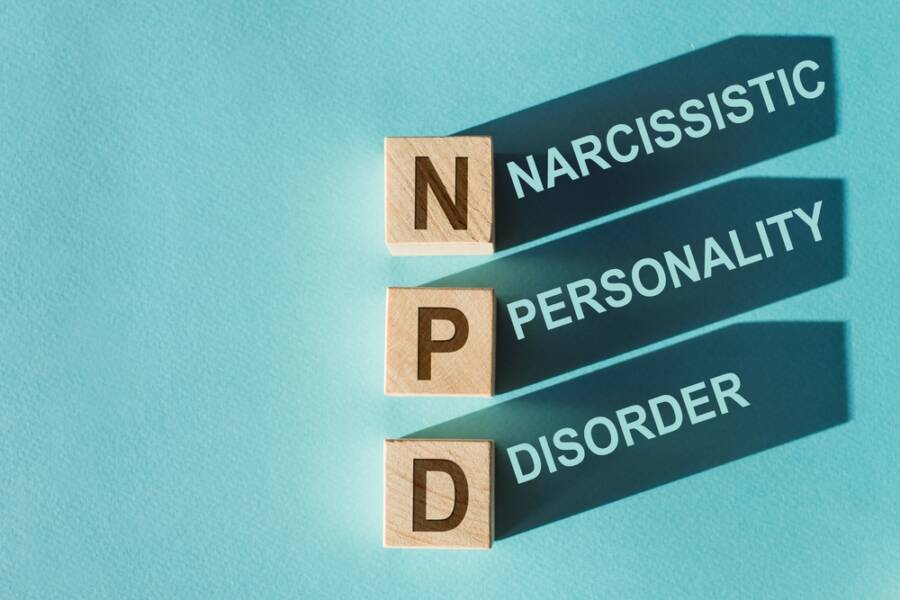Paranoid Personality Disorder, or PPD, is one of those mental health conditions that often flies under the radar. People living with this disorder can function “normally” in many aspects of life, which is exactly why it often goes unnoticed (not only by others but even by the person experiencing it). It’s a disorder wrapped up in mistrust, suspicion, and an overwhelming need to protect oneself, even when there’s no actual threat.
PPD is classified under the cluster A personality disorders in the DSM-5, which are known as the odd or eccentric disorders. Unlike conditions like schizophrenia, those with PPD don’t typically experience delusions or hallucinations. But their distorted ways of thinking and persistent fear of betrayal can still significantly impact their relationships and daily lives.
So, how do you know if someone is dealing with PPD or even if you might have some traits yourself? Let’s talk about ten subtle signs that often go unnoticed or are mistaken for personality quirks.

1. They Constantly Assume the Worst About Others
One of the clearest, yet quietest, signs of Paranoid Personality Disorder is a constant suspicion of other people’s motives. It’s not just about being cautious, but it’s a deeply rooted belief that others are always out to deceive, harm, or manipulate them. This assumption isn’t based on real evidence but on a gut feeling that others have hidden agendas.
You might notice this when someone always questions why someone was “being so nice” to them or assumes that a compliment has some hidden meaning behind it. Even simple acts of kindness can be met with skepticism. Over time, this mindset creates a mental fortress where no one is truly trusted.
2. They Read Hostility into Neutral Remarks
A harmless comment, a vague text message, or even a passing glance can be interpreted as an insult or threat. People with Paranoid Personality Disorder often misread cues and assume negative intent where none exists.
This tendency to perceive neutral or even friendly behavior as hostile can lead to frequent misunderstandings, awkward confrontations, or avoiding social situations. It’s exhausting for both the person with PPD and the people around them, who often feel like they’re walking on eggshells.
3. Forgiving Doesn’t Come Easy, Or At All
If someone with Paranoid Personality Disorder feels betrayed or wronged, it’s incredibly difficult for them to let it go. Forgiveness isn’t just hard. It may even feel impossible. They can hold grudges for years, even over small misunderstandings that most people would move past within a day or two.
Because they’re so convinced of others’ ill intentions, they often see offenses as deliberate acts meant to hurt them. Even if an apology is given, it might be seen as manipulative or not sincere. This inability to let go of perceived wrongs can destroy long-term relationships, even when the “offense” was minor or unintentional.
4. They Have Trouble Confiding in Others
Opening up is difficult for many people, but for someone with this disorder, it feels downright dangerous. Sharing personal information means making themselves vulnerable, and vulnerability is a big no when you believe people are just waiting to use it against you.
As a result, they tend to keep their thoughts and feelings locked up. Even with close friends or family, there’s often a sense of emotional distance. It’s not that they don’t want to connect. They just don’t believe it’s safe. This creates a vicious cycle where the person feels isolated but also resists the very closeness that could help ease their mind.
5. They’re Hyper-Aware of Power Dynamics
People with PPD are very sensitive to control, authority, and dominance. They might bristle at being told what to do, even if it’s something simple or well-intentioned. This comes from a deep fear of being manipulated or taken advantage of.
Even in everyday settings like a team project at work or a conversation with a partner, they might feel the need to assert themselves or resist others’ ideas, just to avoid feeling controlled. It’s not about being difficult on purpose but about self-protection. But unfortunately, it often comes off as combative.
6. Social Situations Feel Like a Minefield
Interacting with others can feel exhausting when you’re constantly trying to decode hidden meanings, anticipate betrayal, and stay emotionally guarded. People with PPD often experience anxiety in social settings, not because they’re shy, but because they’re on constant alert for signs of disrespect, ridicule, or deception.
They might avoid parties, group events, or even casual hangouts, not because they dislike people but because they’re trying to avoid the stress and paranoia that come with those situations. If they do go, they often leave feeling drained, suspicious, and hyper-focused on analyzing every interaction they had.
7. They’re Incredibly Self-Sufficient
On the surface, being highly independent can seem like a strength. But for someone with Paranoid Personality Disorder, extreme self-reliance is less about confidence and more about fear. They don’t want to depend on anyone because they believe people are unreliable, untrustworthy, or even dangerous.
This kind of mindset might look like someone refusing help when they clearly need it, refusing to collaborate on tasks, or even pushing away those who try to support them. In their mind, relying on others makes them vulnerable, and vulnerability equals danger.
8. Romantic Relationships Are Filled With Jealousy
Trust is the cornerstone of any healthy relationship, but for people with PPD, trust is the hardest thing to give. In romantic relationships, this often shows up as intense jealousy, constant questioning, and unfounded accusations.
They might snoop through messages, demand excessive reassurance, or accuse their partner of flirting or cheating without any evidence. It’s not about being possessive for the sake of control. It’s more about a deep-seated fear of betrayal. Sadly, this often creates the very tension and disconnection they’re trying to avoid.
9. They Struggle to See Themselves as the Problem
A common thread in Paranoid Personality Disorder is the belief that the problem lies with everyone else. Since they’re convinced others are constantly trying to deceive or hurt them, it’s incredibly difficult for them to consider that their reactions might be out of proportion or that their suspicions might be unfounded.
This defensive approach can make therapy especially challenging. When a therapist suggests that their interpretations might not be accurate, it can feel like another betrayal. The idea that they might be distorting reality can be too threatening to accept, which is why many with PPD either avoid therapy altogether or drop out early.
10. They’re Often Misunderstood and Very Lonely
Perhaps the most heartbreaking part of Paranoid Personality Disorder is how lonely it can be. People with PPD often want connection, love, and trust just like anyone else, but their intense suspicion and emotional distance make it hard to form and maintain close relationships.
They might be seen as cold, hostile, or “hard to deal with,” when in reality, they’re just afraid. That fear builds walls instead of bridges, and the longer it goes unrecognized, the harder it is to break down. Loneliness becomes both a symptom and a consequence of the disorder.

Is There Help for People with PPD?
Absolutely, but it takes patience, persistence, and often a skilled mental health professional. Therapy, particularly cognitive behavioral therapy, can help individuals with PPD learn to recognize and challenge their distorted thought patterns. But trust-building is key, and that can take time. The therapist must create a safe, consistent environment where the person feels respected and not judged.
Medication isn’t usually the first line of treatment for Paranoid Personality Disorder, but it may be helpful in certain cases, especially if there are co-occurring conditions like anxiety or depression.
Support from loved ones can also make a huge difference, though it’s not always easy. Understanding, compassion, and clear boundaries are essential. And sometimes, just being a consistent, safe presence in someone’s life can help them slowly start to let their guard down.
If you are looking to improve your mental health, here is a 52-Week Mental Health Journal that we recommend trying out.
Did you like this article? Here’s what to read next: 10 Things That Nearly Double Your Risk of Dementia.










Leave a Reply